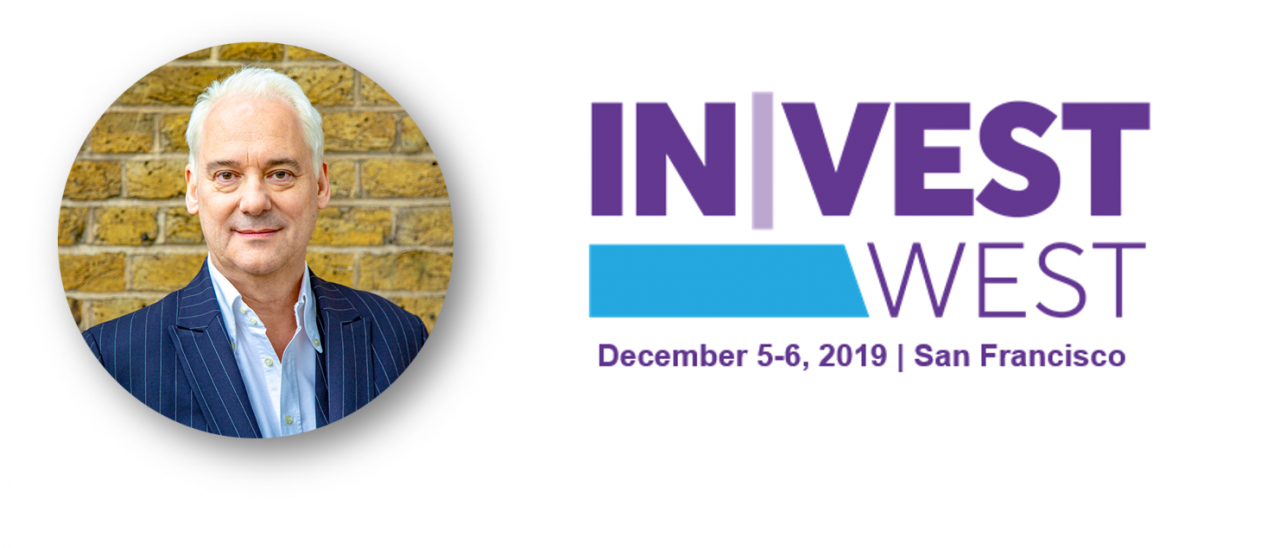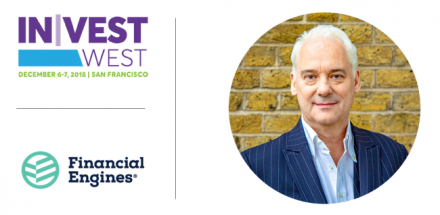
In|Vest West 2019: Financial Advice – An Industry approaching a tipping point

Of all the different wealth tech conferences I attend globally each year, the July InVest show in New York is the single event that attracts the biggest hitters and the boldest launches. The sister show, InVestWest in San Francisco each December can however be equally compelling.
A more cozy event this year it certainly highlighted many of the stark contradictions that currently exist in the financial advice market.
On the one hand technology will inevitably transform the industry, the key question is when? Conversely an ageing advisor community, which is still substantially resistant to technology, continues to manage a vast amount of investors wealth.
While digital advice propositions such as Betterment, Personal Capital and Wealthfront, each with their own subtly different models have now attracted substantial assets these are still a drop in the ocean compared to the mainstream advisor market.
Over a series of panels and fireside chats a range of speakers highlighted key issues and many contradictions. For example, Mike Sha Founder and CEO of SigFig pointed out that many advisor firms focus on the challenges for their businesses, rather than putting the client experience at the heart of everything that they do.
Sha suggested advisor technology really should be so easy to use that it doesn’t require training and that while we work in a complex industry, technology suppliers need to find ways to make the complex simple. He suggests this needs a very different skill set to deliver than the teams building much advisor tech. While organisations building traditional systems might need people with extensive experience in the industry, building a truly compelling use experience necessitates an understanding of user experience skills.
Fidelity’s David Cantor noted significant changes in the way that advisor technology has been constructed post 2013. Prior to this he said systems had been based on the best practices of the past, where as today new systems are built looking forward. Cantor also highlighted that while many firms are spending a growing amount of time focusing on the customer experience, many do so at the expense of not considering the advisor experience, which can lead to an exodus of staff.
Session moderator Craig Iskowitz pointed out that in the US technology is actually one of the few ways in which advice firms can differentiate themselves in an increasingly homogeneous market. There is evidence of far wider advisor tech adoption in the US, more about this later.
Sha argued that modern advisors add real value by persuading clients to change their behaviour and stick to their goals. However, he argued that whilst this may be the future direction of the industry many advisors, have spent the last 25 years focusing on building investment portfolios and are struggling to adapt to a planning lead approach.
Less than a month before the start of the next decade, Cantor predicted three key changes which will define the 2020s. Firstly transparency both of charges and contracts, additionally an intertwining of health and wealth as among an ageing community which is living at longer; the former has an increasing impact on the latter.
Finally, integration will be crucial, advisors may have a plethora of technology choices, but all the different systems need to interoperate seamlessly if they are to optimise cost saving rather than multiply data entry.
In a subsequent session Suleiman Din, Technology editor of Financial Planning magazine, presented the findings of their recent research on US advisor technology use. Significantly only 11% of advisors are currently offering digital advice propositions to their clients. When it comes to more traditional technologies however the research reveals far wider adoption.
Din identified that respondents had to be invited to participate by the publication so to some extent the results might be slanted towards firms who are technology oriented, however the detailed results published in Financial Planning identified very high levels of tech adoption with 96% of firms using financial planning software, 95% CRM and 89% client portals.
Asked what technology would most change wealth management no fewer than 42% called out Behavioural Finance software; by comparison only 18% saw Artificial Intelligence as the the primary driver of change.
Overall these two sessions painted a fascinating picture of the current financial advice community – an industry where change is inevitable, but the time frame is unclear. It is impossible to deny the success of the old order, the case for change is compelling and the tools are arriving to facilitate transformation. A vastly different set of technology services based around behavioural and medical science will give a new generation of advisors far greater ability to more accurately predict personalised client outcomes and guide them towards achieving goals. To me the question is not if this will happen but when, how can firms be ready to move to the new normal without undermining their established successful distribution?











0 Comments